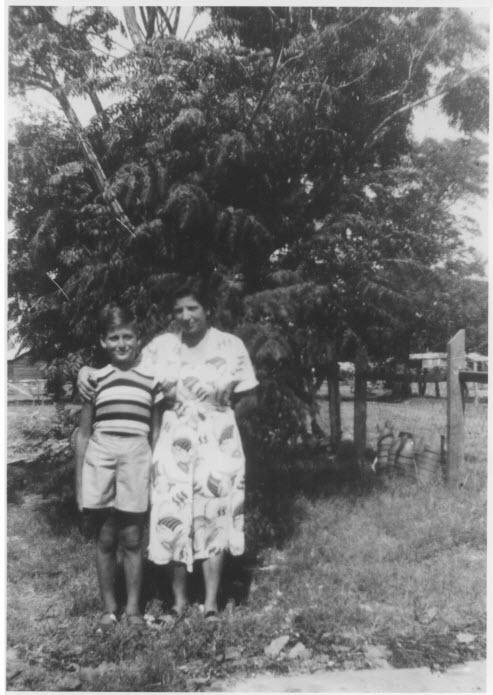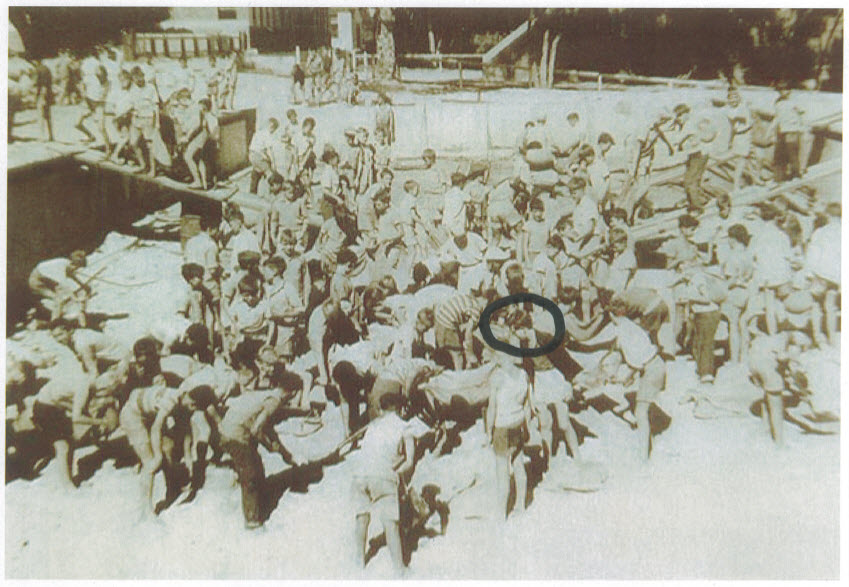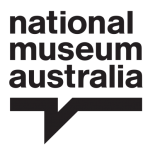“I may not have been an orphan in the real sense of the word, and my experience at Clontarf as a state ward, however, was full of orphaning experiences”. Godfrey Gilmour, a retired Anglican priest, noticed himself as a child in a photograph, published on this website, taken by Mick O’Donoghue at Clontarf Boys Town in the 1950s. Here, he shares his experiences as a child migrant from a loving family in Malta to the harsh conditions at Clontarf:
I was born in Malta in 1944 in wartime. My mother was Mary Tonna and my father Geoffrey was an English soldier recently transferred to Malta from the North Africa campaign. My parents met sometime in late 1942 or early 1944. It was a wartime love affair and did not come to light til my mother became pregnant and her parents became involved. It was then discovered that Geoffrey was married and that despite my grandfather’s attempt to sort something out, it came to no avail. The army then intervened and sent Geoffrey away to the Italian campaign. My mother never heard from him again and her registered letters to him containing photographs of me went unanswered.
After the war, I lived with my mother and grandparents. It was a comfortable and culturally enriching life. I was close to my grandparents and extended family and I still have very happy memories of that period of time.
At the age of seven I was placed in St Patrick’s School in Sliema which was a boarding school where I experienced abuse for the first time, my family was unaware of this, and I felt unable to tell them about the events at St Patrick’s for I was fearful of the repercussions that might ensue. I was eager to leave the place and always longed to see my father. Some time in 1952 Father Cyril Stinson came to the school in Malta from Western Australia to recruit boys to migrate to Australia. I always remember that he had a florid face and smelt of whiskey. Along with other boys I was told how wonderful Australia was, and the wonderful school we would be going to. My mother along with other parents was also told similar things and also thought this would be a good thing especially as she was also advised that she could also follow me to Australia. In my child’s mind, I thought that somehow, I would be closer to England and that I might see my father. I had no idea Australia was on the other side of the world.
In July 12th 1953 I migrated to Australia. When I arrived at Clontarf, I immediately felt that this was a dark place. And it proved to be so almost from day one. It felt as though I had landed like on the dark side of the moon. I didn’t fit in at Clontarf; I had come from a cultured family in Malta. My mother had a wonderful singing voice. I always had plenty of reading matter, at night, in Malta; she would sing me to sleep with operatic arias that she had learnt. But at Clontarf, I experienced a great deal of deprivation especially in the early years. I was to experience emotional, physical and sexual abuse almost the very first days. There was a predatory culture at work at Clontarf and at Castledare; young boys were preyed upon by particular staff and also older boys. My first nights in one of those large cold dormitories were miserable and I recall crying myself to sleep wondering when my mother was going to arrive and take me away.
From the first days I witnessed and then personally experienced the harsh discipline and the use of the infamous straps made of several layers of leather and reinforced with metal to make them weightier and more painful. The staff carried these up the sleeves of their cassocks and used them with terrible efficiency. In the absence of their straps staff resorted to sticks, canes and fists even on very young boys and those who were maimed through accidents. The attitude of some staff was sadistic.
There was also this process of depersonalisation at work at Clontarf and a loss of identity. I soon became a number. My Christian name was never used, only my number and surname. My personal belongings were soon taken away from me, my books were burnt, and my mail home was censored. We were forbidden to speak Maltese. Being bi-lingual I was at times told to translate letters from Malta to Maltese boys for the principal in case information about Clontarf was getting back to Malta. There was a lack of respect for the individual, the well-being of the institution mattered more.
The food was so awful after the Mediterranean diet I was used to; hunger was a constant reality, and boys resorted to raiding the pig bins for food. The enforced nudity, the lack of privacy [even the toilets lacked doors], the constant hard work that we had to engage in, often in dangerous conditions, made inroads into our health and well-being also affected of academic performance. Many boys failed academically and were put to work at an early age and were functionally illiterate on leaving Clontarf.
My mother came out to Australia in October 1954. Catholic welfare found her work at a Catholic presbytery in Fremantle. In early 1955 my mother found employment at Castledare, the junior orphanage that fed into Clontarf. She became uncomfortable with the violence that she saw. On raising this with one of the brothers, he said, “I didn’t want to be here. My parents forced me to become a Christian Brother”.
My mother was asked to leave Castledare and moved to Perth and worked there. In 1957 my mother married Jack Gilmour. He immediately wanted to adopt me legally and immediately ran into obfuscation both by the authorities and also the staff at Clontarf. People did not readily question authority in those days. Unbeknown to them, I was legally a state ward. My step father then took steps to change my name by deed poll. This was done much to the chagrin of Brother Doyle, the principal, who in an interview with my parents at which I was also present raised objections. My parents insisted that I should now be known as Godfrey Gilmour. Already out of favour with Brother Doyle this latest issue made life difficult, ever more difficult for me.
My final year at Clontarf was spent in Br Doyle’s class. It was a devastating year for me. I was brutalised and humiliated by this man all year. I was at times hit over the head by this man and had my spectacles broken after being hit across the face. He took a dislike to my accent and constantly drew attention to what he described as my ‘plummy accent’ and humiliated me in front of my peers. I became an anxious boy, I developed a speech impediment, had sleep problems and even experienced bouts of enuresis, [bed wetting] something I had never experienced in my life. At the end of the school year I was simply told to leave and not come back. I virtually left in the clothes I was standing in. I was still a ward of the state and yet my parents received no support whatever for my transition to life outside the orphanage. After several years my mother received a letter from the Child Welfare Department in Perth, advising my mother that she could now adopt me.
Such was my experience in care in Western Australia, I may not have been an orphan in the real sense of the word, and my experience at Clontarf as a state ward however was full of orphaning experiences. Putting the past behind me I forged a career in education, family welfare and ministry.
PS: I was to meet my father in the UK, shortly before he died we were reconciled. I also met 9 siblings and large family. My mother did not live to see that day. She died in Malta.



